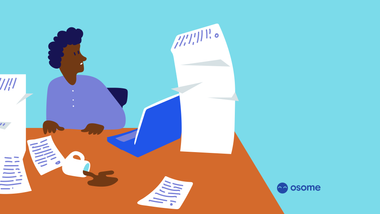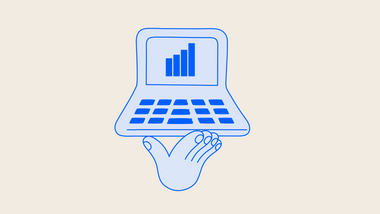A Guide to Calculating Taxes for Freelancers and Self-Employed
During tax season, it can get increasingly frustrating or confusing for freelancers and self-employed people as they are not clear about their tax obligations.

We have heard the term, ‘freelancers’ and ‘self-employed’ often. During tax season, it can get increasingly frustrating or confusing for freelancers and self-employed people as they are not clear about their tax obligations.
Likewise, it’s important to know the difference which will lead you to know how to pay taxes during the tax season. In this article, we will examine the difference between freelancers and self-employed, and the methods of calculating your taxes. We will also explore when a freelancer should register company in Singapore.
Who Are Considered As Freelancers or Self-Employed?
These 2 terms are often used interchangeably in Singapore, but they mean different things in one way or another.
Freelancers can be considered as someone who works on a short contract or contract basis. Freelancers must fulfil their contractual obligations. Freelancers are common in the creative sector.
A self-employed person earns a living by doing a business, profession or vocation. They are also considered as sole-proprietors and partners in a partnership. If they are registered as sole-proprietors and partners with the Accounting and Corporate Regulatory Authority (IRAS) are self-employed.
What Are the Factors That Make One a Freelancer or a Self-Employed Person?
Here are some of the factors that make one a freelancer or self-employed person:
| Freelancer | Self-employed person |
|---|---|
|
|
Despite the differences, it appears that a freelancer can be considered as a type of self-employed.
What Taxes Do Freelancers Pay?
Freelancers are obliged to pay taxes for the business income they earned in a year. This will be considered as trade income, and it will be taxed at individual income tax rates.
Paying tax can be a tedious process. However, you are exempted from paying tax if you are earning less than S$22,000 per year. If you are earning more than S$22,000, you have to pay tax.
As a freelancer, you get to decide on the accounting period. Most businesses set their accounting period as the end of December, but they may choose their accounting period that ends on any date.
At the end of the accounting period, you must prepare a Statement of Accounts which comprises:
- Profit and Loss Accounts
- Balance Sheet
By preparing your Statement of Accounts, it helps during the process of your tax filing. Depending on the income earned, you are required to prepare a 2-line statement or a 4-line statement for filing of your Income Tax Return.
For income earned less than S$200,000, you should report your business using a 2-line statement.
For income earned more than S$200,000, you should report your business using a 4-line statement.
The calculations for the respective statements are as follows:
2-Line Statement
1st Line – Revenue
2nd Line – Adjusted Profit
4-Line Statement
1st Line – Revenue
2nd Line – Gross Profit/Loss
3rd Line – Allowable Business Expenses
4th Line – Adjusted Profit & Loss
Melvin provides graphic design services and design consultation to companies. He earned S$50,000 last year. His allowable business expense is about $10,000. Using the 2-Line statement, this will be the calculation:
| Revenue | $50,000 |
| Adjusted profit | $40,000 |
Mavis sells men and women’s wallets. She earned S$400,000 last year. The cost of her goods is $100,000. Her allowable business expense is $50,000. Since her income earned is more than S$200,000. She will report her tax by using a 4-Line statement.
| Revenue | S$400,000 |
| Gross Profit/Loss | S$100,000 |
Allowable Business Expenses |
S$50,000 |
| Adjusted profit | S$250,000 |
What Can Freelancers Claim To Reduce Taxes?
Often freelancers are not aware that claiming certain expenses helps in the reduction of their taxes. Business expenses are one of them. It refers to any business expenses that incur during the running of your business. However, do note that only allowable business expenses may be deducted against your income.
This is how it’s done:
Belle’s business revenue for her health products business last year amounted to S$200,000. The total business expenses are S$50,000. Out of this amount, only S$10,000 is allowed business expenses. Here is the calculation:
| Business Revenue | S$200,000 |
| Business Expenses | Total business expenses: S$50,000 Disallowed business expenses: S$40,000 Allowed business expenses: S$10,000 |
| Income subject to tax | Business Revenue – Allowed business expenses S$200,000 – S$10,000 = S$190,000 |
To know more about the other items that are claimable, you may refer to this comprehensive list.
When Should Freelancers Change Company Structure to Private Limited?
Despite having the flexibility to choose different projects and clients, freelancers will have to think about sustainability on a long-run basis. If the company’s business has increased over time and you are planning to hire more help to complete the work, you may want to consider changing the company structure to private limited.
There are many advantages to incorporating a private limited company, such as the income earned will be taxed at a corporate tax rate, instead of an individual tax rate. Likewise, if the company has decided to bid for more projects, a private limited status will help to create a professional image to the client.
Read more: When Should a Freelancer Register for Private Limited Company
Key Takeaways
- A freelancer is someone who works on a short contract basis.
- A self-employed person earns a living by doing a business, profession or vocation. Sole-proprietors and partners are considered self-employed.
- Sole-proprietors and partners who are registered with the Accounting and Corporate Regulatory Authority (ACRA) are self-employed.
- Freelancers have to pay tax based on the business income they earned and it will be taxed according to the individual tax income rate.
- Freelancers get to choose their accounting period. Though most businesses end their account period during the end of December, freelancers can choose which date to end.
- During the filing of income tax returns, they must prepare Profit & Loss accounts and balance sheets.
- Income received that is more than S$200,000, you have to report business by using a 4-Line statement. Anything that is less than S$200,000, you have to report business by using a 2-Line Statement.
- There are several expenses that freelancers can claim. One of them is business expenses.
- One of the advantages of changing company structure from sole proprietor and partners to private limited is the corporate tax rate.
If you are a freelancer and are thinking of incorporating your company, we can assist you with the administrative process. Beyond that, we also help small businesses with accounting and bookkeeping services.







